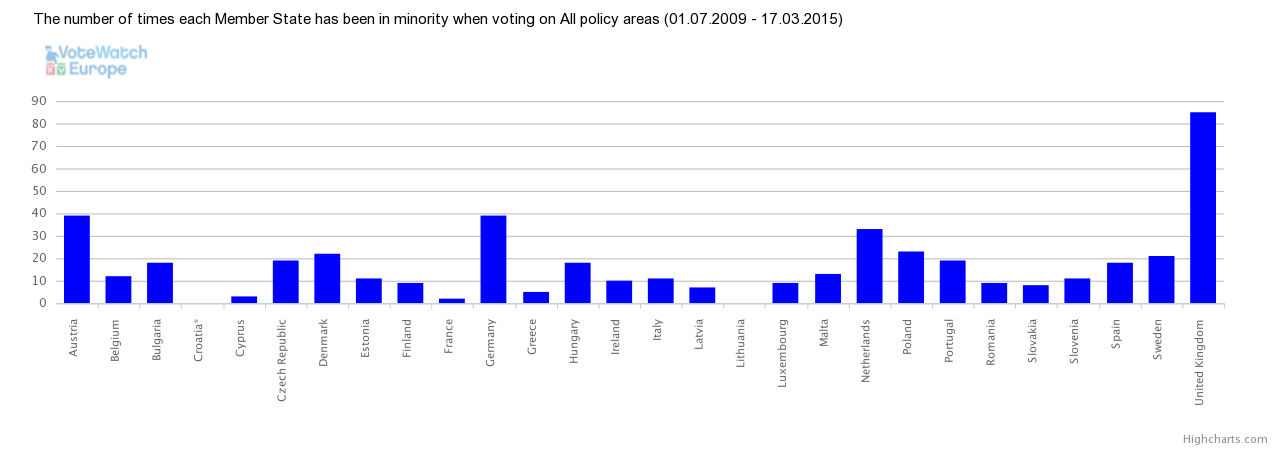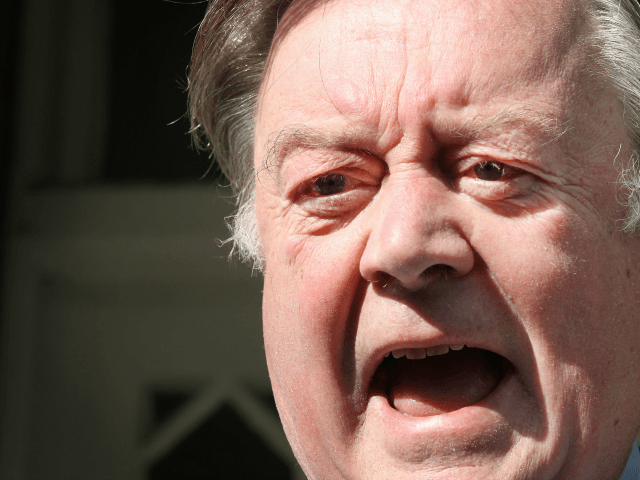Ken Clarke, the arch-europhile Tory MP who once called for the British parliament to be reduced to the status of “a council chamber” in the European Union (EU), received rapturous applause from MPs after making the case for remaining in the bloc, despite the public voting to leave in June 2016.
Back in 1996, the former Home Secretary and Chancellor of the Exchequer told The International Currency Review, “I look forward to the day when the Westminster Parliament is just a Council Chamber in Europe”.
Speaking in the two-day Brexit debate accompanying the bill which will authorise the government to activate Article 50 of the Lisbon Treaty and formally begin the Brexit process, the 76-year-old made it clear that his views have not changed.
“It falls to me to be the first member of this House to set out the case why I believe that it’s in the national interest for the United Kingdom to be a member of the European Union; why I believe we have benefited from that position for the last 45 years, and most importantly why I believe future generations will benefit if we actually succeed in remaining a member of the European Union,” he began.
“I believe that membership of the European Union was the way in which we got out of the appalling state we were in when, after Suez, we discovered we had no role in the world … Our membership of the European Union restored to us our national self-confidence [and] gave us politically a role in the world as a leading member of the Union.”
The UK has, in fact, been outvoted in the European Council more often than any other EU member-state, and 72 out of 72 attempts to block unwanted EU measures have failed since 1996.

“Our economy benefited enormously [from EU membership]”, Clarke pressed on, refusing to take any interventions, “and continued to benefit even more as the [Single] Market developed”.
Margaret Thatcher, often credited as the architect of the Single Market by europhile Tories, judged it a failure in her book, Statecraft, and a report by the Civitas think tank determined that the Single Market conferred no “insider advantage” on the UK with respect to European trade.
Clarke continued:
“It is a very, very bad move, particularly for our children and grandchildren, that we are all sitting here now saying that we’re embarking on a new unknown future … which I think is simply baffling every friend of the British and the United Kingdom throughout the world.”
The MP neglected to mention the recent statement by President Donald J. Trump, who leads Britain’s most significant international partner, that “Brexit is going to be a wonderful thing for your country.”
With respect to the democratic mandate for leaving the EU, Clarke insisted that he had “made no commitment to accept a referendum”.
“The referendum had always been described as advisory”, he claimed. “No sensible country has referendums. The United States, Germany, don’t have referendums in their political system.”
In fact, the United States conducted 162 referendums in 2016, of which 76 were initiated by popular petitions. U.S. referendum firm Goddard Gunster even assisted the Leave.EU campaign’s efforts during the Brexit referendum.
Clarke concluded by invoking the father of conservatism, Edmund Burke, and paraphrasing the famous ‘Address to to Electors of Bristol’ in which he said, “Your [MP] owes you, not his industry only, but his judgement; and he betrays, instead of serving you, if he sacrifices it to your opinion.”
“I personally shall be voting with conscience, content in this vote,” Clarke boasted. “When we see what unfolds hereafter, as we leave the European Union, I hope the consciences of other members of Parliament will remain equally content.”
MPs, reported to have voted to Remain in the EU by a margin of around three-to-one, roared with approval and burst into spontaneous applause as Clarke returned to his seat, which is extremely unusual in the House of Commons.
Burke’s passage on MPs following their consciences is extremely popular among politicians. Less well publicised is the more nuanced view he expressed in Thoughts on the Present Discontents: “I am not one of those who think that the people are never in the wrong. They have been so, frequently and outrageously, both in other countries and in this. But I do say, that in all disputes between them and their rulers, the presumption is at least upon a par in favour of the people.
“Experience may perhaps justify me in going further. When popular discontents have been very prevalent; it may well be affirmed and supported, that there has been generally something found amiss in the constitution, or in the conduct of Government.”

COMMENTS
Please let us know if you're having issues with commenting.